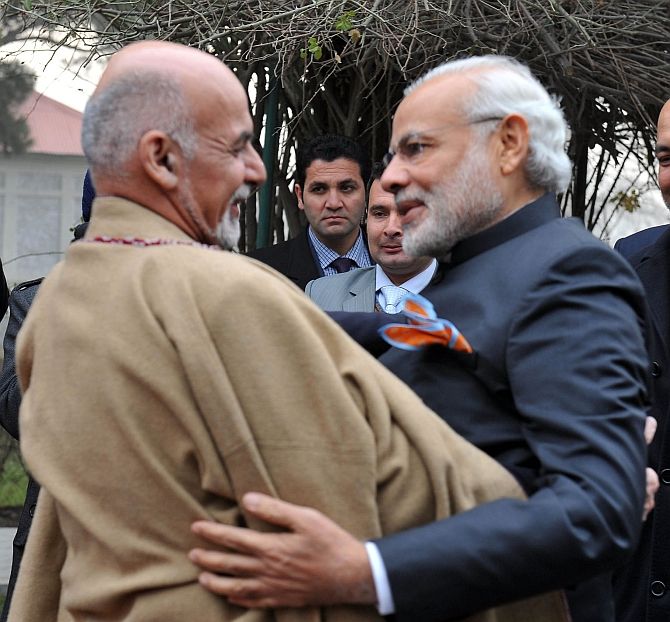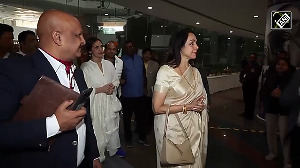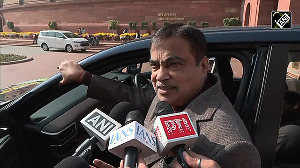'Foreign ministry sources in Delhi discount the official version of the story, in which Modi made an impromptu request to stop over at Lahore, during the course of a birthday telephone call to Nawaz Sharif.'
'In fact, this stopover had been carefully considered in Delhi, as a way to galvanise the peace process further.' Ajai Shukla reports.

The brief stopover at Lahore that redefined the rules of Indo-Pak diplomacy came on Prime Minister Narendra Modi's journey home to Delhi from Kabul, where he inaugurated Afghanistan's new parliament building -- a Rs 710 crore (em>Rs 7.1 billion) gift from India to the people of Afghanistan.
Foreign ministry sources in Delhi discount the official version of the story, in which Modi made an impromptu request to stop over at Lahore, during the course of a birthday telephone call to Nawaz Sharif. In fact, this stopover had been carefully considered in Delhi, as a way to galvanise the peace process further.
In an intriguing aside, businessman Sajjan Jindal, who apparently set up a meeting between the two prime ministers in Kathmandu last year, was present in Lahore as Modi arrived.
On Friday afternoon, he tweeted a photograph of himself with the message, 'In Lahore to greet PM Navaz (sic) Sharif on his birthday.'
It is not known whether Jindal played any role in mediating this meeting.
While it is not known what the two leaders discussed, the resumption of dialogue would surely have featured on the agenda.
On Thursday, Sharif's Foreign Affairs Advisor Sartaj Aziz had told Pakistan's national assembly that the two foreign secretaries would meet soon to discuss a comprehensive bilateral dialogue. Both foreign secretaries accompanied their respective PMs.
Earlier on Friday, while inaugurating the Afghan parliament, Modi addressed a full sitting, and urged a regional approach to restoring peace.
'All of us in the region -- India, Pakistan, Iran and others -- must unite, in trust and cooperation, behind this common purpose and in recognition of our common destiny,' he said.
Modi's advocacy of regionalism comes as Islamabad spearheads a 'four party' approach to restarting dialogue with the Taliban, featuring the United States, China, Pakistan and Afghanistan. India has been conspicuously left out.
Highlighting Pakistan's growing role in bringing the Taliban to the table, Pakistan's army chief, General Raheel Sharif, will visit Kabul on Sunday to coordinate a second round of talks with the Taliban.
After a first round of talks at Murree last year, Kabul called off the dialogue when it emerged that Mullah Omar had been dead two years and it was unclear who the government of Afghanistan was negotiating with.
Sharif will have his task cut out with a growing succession struggle within the Taliban.
On Friday, The New York Times reported that the chiefs of several Taliban factions had written to Mullah Mohammad Mansour, Mullah Omar's successor, rebuking him for a recent bloody crackdown on dissent within the Taliban.
Modi, however, made it clear that India supported the reconciliation dialogue.
He told Afghan parliamentarians: 'Those waging war from outside must seek a path to this building and this hall. Those seeking territory through gun must seek power through ballot. Those who have destroyed homes must now rebuild their nation.'
IMAGE: Afghanistan President Mohammad Ashraf Ghani greets Prime Minister Narendra Modi in Kabul. Photograph: Press Information Bureau











